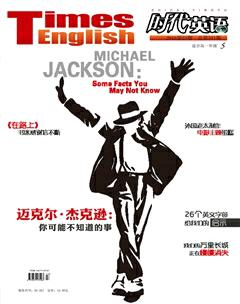词汇短语园地3
1. audience n.(戏剧、音乐会或演讲等的)观众;
听众
The audience was (were) clapping for 10 minutes.
观众鼓掌长达10分钟。
An audience of millions watched the wedding on TV.
几百万观众在电视上观看了婚礼。
2. lose (lost,lost) vt. 失去;丢失;失败
The tickets seemed to have lost.
那些票好像给弄丢了。
I often lose money because of my carelessness.
我经常由于粗心而丢钱。
lose sth (to sb) 被夺去;被打败
The company has lost a lot of business to its competitors.
公司的许多业务被对手夺去。
We lost to a stronger team.
我们输给了一支更强劲的队伍。
lose oneself in 沉迷于;专心致志于
lose sight of 看不见 lose control of 控制不住
lose weight 减肥 lose ones heart to 爱上某人
lose track of 和……失去联系;不知……的情况、下落
lose contact/touch with 和……失去联系
lose ones tongue 不知说什么好;紧张得说不出话
be lost in 迷失在……之中;陷入;被……所吸引;
3. influence vt. 影响
n. 影响;有影响的人(事)
Dont let me influence your decision.
不要让我影响你的决定。
Those friends are a bad influence on her.
那些朋友对她有负面的影响。
What exactly is the influence of television on children?
电视对儿童究竟有什么影响?
(1) influence on/upon sb/sth 对……有影响、作用
Listening to the music has a calming influence on her.
听音乐对她起了一种镇静的作用。
(2) influence over sb/sth 对……的支配力、控制力
Her parents no longer have any real influence over her.
她的父母对她不再有真正的约束力了。
(3) be strongly/greatly/deeply influenced by sth/sb
受到某事(人)的强大 / 巨大 / 深刻的影响
He was deeply influenced by his English teacher.
他受到英语老师极大的影响。
have a(n)...influence on... 对……有……影响
under the influence of 在……的影响下
比较:affect,effect和influence的区别
affect,effect,influence均可表示“影响”,其区别是:(1) affect是动词,主要指一时的影响,着重影响的动作,可指一般意义的影响(不分好坏),也可指不良影响;effect是名词,三者的关系大致为:affect sb/sth= have an effect/influence on sb/sth。
(2) influence表示“影响”,主要指对行为、性格、观点等产生间接或潜移默化的影响,可用作动词或名词。
Its clear that her painting has been influenced by her mother.
她的画显然受了她母亲的影响。
The news did not affect the school at all.
=The news had no effect on the school at all.
这条消息对学校没有一点影响。
注意:effect有时用作动词,但不表示“影响”,而表示“实现”或“产生”等。
He effected great changes in the company.
他使公司发生了巨大的变化。
4.record vt. 记录;记载;录(音、像)
n. 记录;记载
Her diary records all the happenings of her days.
她的日记记载了她那个时代所发生的一切。
Did you remember to record Friends for me?
你记得为我录下电视节目《朋友》了吗?
This is not a live match, but a recorded one.
这不是直播的比赛,而是录像的。
You should keep a record of your expenses.
你应该记下你的各项开支。
He had an impressive record of achievement.
他所取得的一系列成就令人赞叹。
keep a record (records) of 把……记(录)下来
on record 有记录
hold/keep a record 保持纪录
break the record 破纪录
set a new record 刷新纪录
5. mix vt. & vi. 使混合
Mix them together so that you can have a sticky paste.
将它们混合,你就可以得到一种黏性糨糊。
Oil and water do not mix.
油和水不相融。
mix up 弄错;弄乱
mix sb/sth up (with sb /sth) 弄错;误认为……是
be/get mixed up(指人)弄糊涂了
be/get mixed in sth 卷入;与某事有牵连
mix...in (with)... 掺入;和入
mix...into/to... 将……混合制成……
6.tour vt. 旅行;作巡回演出、比赛等
n. 旅行;巡回演出、比赛等
They are touring in Japan.
他们正在日本旅行。
My tour lasted a whole year.
我的旅行持续了一整年。
She is in the United States on a speaking tour.
她正在美国作巡回演讲。
比较:journey,voyage,trip,tour和travel表示“旅行”时的区别。
(1) journey指从一地到另一地,通常指陆地上的远距离旅行,有时也可以表示经常走的或长或短的“路程”。
At first I was afraid the long journey would be too much for a child.
起初我担心小孩不能走这么远的路。
(2) voyage主要指远距离的水上旅行,也可以指空中旅行,意思为“航海;航空;航行”等。
It is a successful voyage to the ship.
这是那艘船的一次成功的航行。
(3) trip一般指时间短、距离近的“旅行、远足”,也可以指长途旅行。在非正式用语中可代替journey。
I made a bus trip to the town last week.
上星期我乘公共汽车去城里玩了。
(4) tour着重指旅行线路比较曲折,常表示“(周游各地的)参观、访问、(巡回)旅游、视察、购物、演出”等意思。
I will tour the world in the future.
我将来会周游世界。
(5) travel旅行,游历,一般表示从一地到另一地旅行的总概念。常指长时间、远距离的旅行,尤指出国旅行。
They came home after years of foreign travel.
他们在多年的国外旅行之后回家了。
7. be impressed with 留下深刻印象
I was very impressed with his performance.
他的表演让我印象深刻。
8. split up 分裂;分割
The day was split up into 6 one-hour sessions.
一天的活动分作6个时段,每个时段1小时。
Shes split up with her boyfriend.
她和男朋友分手了。
split...into... 分开;使分开
She split the class into groups of four.
她按4人一组,把全班分成若干小组。
split sth between sb/sth或split sth with sb 分摊;分担;分享
She split the money she won with her brother.
她把得到的钱与弟弟分了。
His time is split between the London and Paris offices.
他一半时间在伦敦办事处,一半时间在巴黎办事处。
9. make a note of 记录;记下来;注意;记住
Make a note of the address.
把地址记下来。
Make a note of how much money you spend on the trip.
把你旅行中的花费记录下来。
Well make a note of your suggestions.
我们会记住你的建议的。
make notes 做笔记
take notes of 记下

